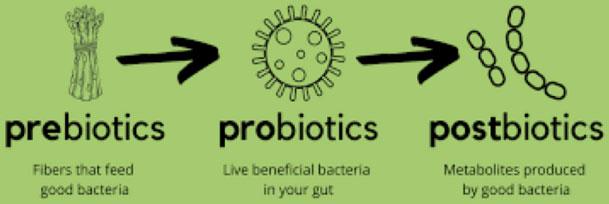
Nourish your gut
What is the Gut Microbiome?
- The gut microbiome is comprised of microorganisms such as bacteria, fungi and viruses that are distributed throughout the gastrointestinal (GI) tract.
- Ongoing research suggests that the gut microbiome impacts various aspects of human health, including:
- Digestion and nutrient absorption
- Immune system support
- Mental health (often referred to as the gut-brain axis)
- Disease risk, such as diabetes, cardiovascular disease, some cancers, digestive disorders and autoimmune disorders
Eubiosis vs Dysbiosis
- Eubiosis means there is a balanced microbiome with a healthy diversity of bacteria.
- Dysbiosis means there is an unbalanced microbiome with too few good bacteria, too many bad bacteria and/or lack of bacterial diversity.
Foods that Promote Eubiosis
Prebiotics
- Vegetables: artichokes, asparagus, carrots, garlic, leeks, onions
- Fruits: apples, bananas (especially green), citrus fruits
- Grains: barley, oats, whole grains
- Legumes: beans and lentils
Probiotics
- Yogurt with live active cultures
- Fermented foods: kefir, kimchi, kombucha, miso, unpasteurized raw pickles or sauerkraut
Polyphenols
- Fruits: apples, blueberries, cherries, grapes, pears, strawberries
- Vegetables: broccoli, Brussels sprouts, cabbage, cauliflower, tomatoes
- Spices: ginger, red pepper flakes, turmeric
- Beverages: coffee, green tea
- Other: dark chocolate, peanuts, soy products
Omega-3 fatty acids
- Fatty fish: anchovies, herring, mackerel, salmon, sardines, tuna
- Nuts and seeds: chia, flax, hemp, walnuts
Foods that Promote Dysiosis
- Foods and drinks with high amounts of added sugar
- Foods with high amounts of added sodium
- Fried foods
- Ultra-processed foods
- Non-nutritive sweeteners
- Alcohol

